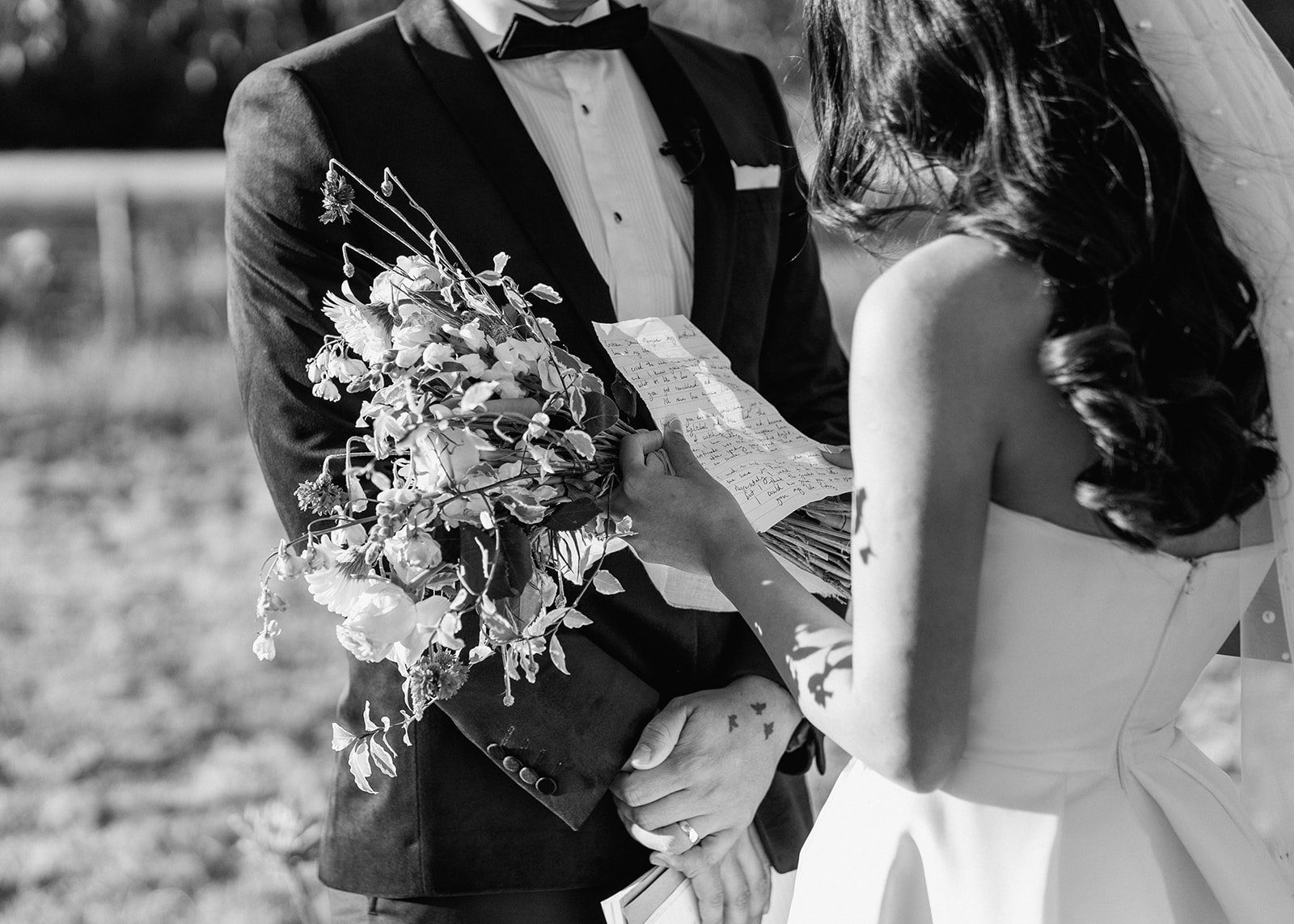When looking into eloping, you may have come across the term “commitment ceremony”, and you might be wondering “what even is that?”. In short, a commitment ceremony is the act of vowing to spend your lives together without the legal paperwork. It’s essentially getting married, without legally getting married. Commitment ceremonies may also be referred to as a “symbolic ceremony” or “promise ceremony”.
Historically commitment ceremonies were used for people who were not legally allowed to marry, for such ancient reasons such as race or sexuality. Thankfully we no longer have such restrictions to marriage here in Australia. But furthermore commitment ceremonies are now used in a much different sense, and open to anyone, including LGBTQI+. Unless sadly you are from a country that still has these backwards legal restrictions on marriage. If so I’m so sorry for the way the world is, you are loved and accepted here.
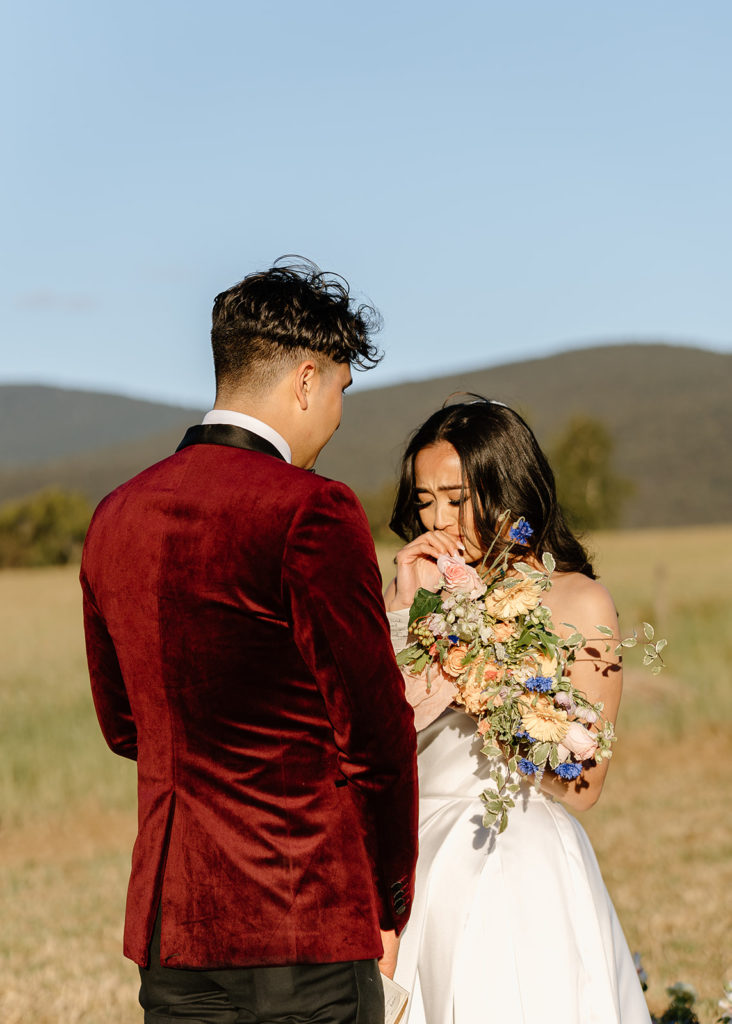
Why have a commitment ceremony?
One of the most common reasons couples choose to have a commitment ceremony in modern times, is if you are having a destination elopement or want to get married remotely. For example, if the way you desire to get married may not coincide with having a legal celebrant join you on the day. This could look like an extended honeymoon elopement overseas, getting married in a remote area interstate, or even having a hiking overnight elopement in the wilderness within your own state. Alternatively if you do want to have a legal commitment, in this case of getting married remotely. You can do the paperwork at your local registry office for legal purposes, and then have a commitment ceremony on your actual wedding day.
Some other common reasons couples choose to have commitment ceremonies are:
- You want your day to be just the two of you, without witness’ and a celebrant
- The traditionalism of marriage doesn’t interest you, but you want to spend your life with your person and celebrate that
- For tax or legal purposes
- Freedom to get married anywhere you want (some countries such as England has restrictions on where you can get married ie. has to be undercover in a legally registered venue)
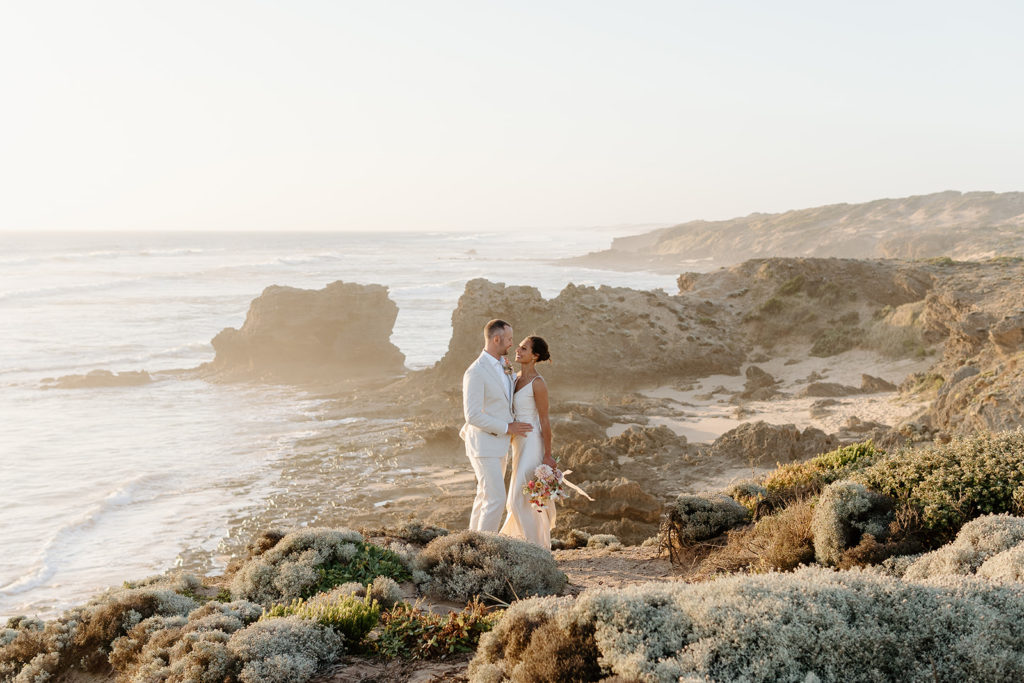
Commitment ceremony vs. wedding
The only difference between a commitment ceremony and a legal wedding ceremony, is that commitment ceremonies are not legally binding. Meaning you are not legally married on paper, and are not known to be married by the government.
Weddings in Australia require you to have 2 witness’ and a legal celebrant to legally bind your marriage. Whilst commitment ceremonies require no one but yourselves to be present.
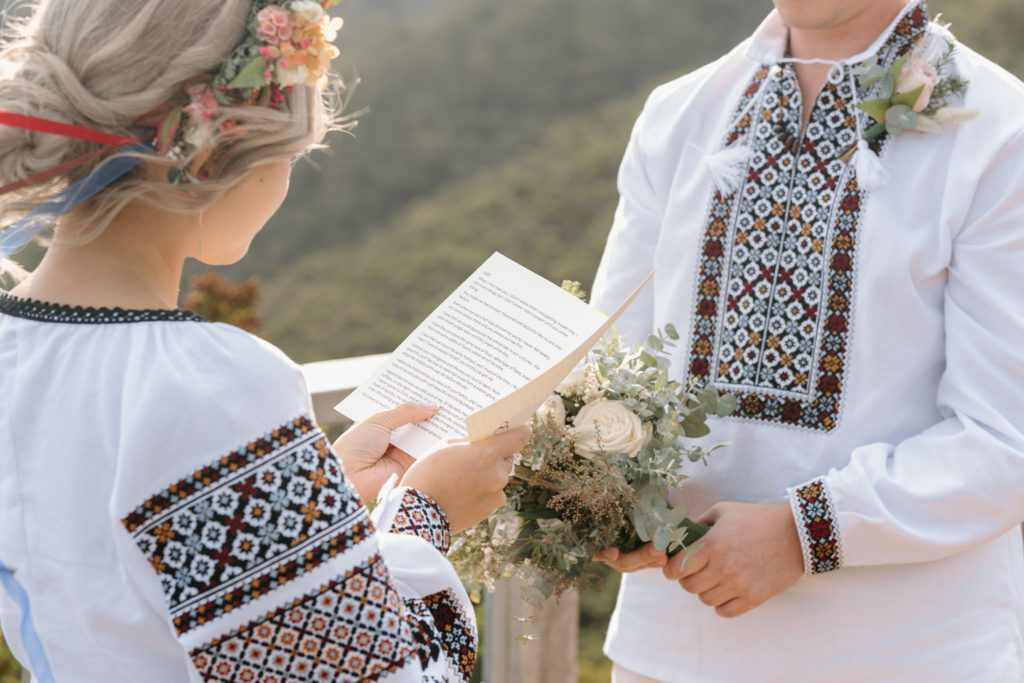
What do during a commitment ceremony
Whilst your commitment ceremony might differ from a traditional wedding ceremony in the sense, that is it not legal. That doesn’t necessary mean your ceremony has to be all that different, if you don’t want it to be. Your commitment ceremony could be the exact replica of a legal ceremony, minus the celebrant’s readings and legal words, if you want it to be. Whether you desire a more “traditional” ceremony, or you want to entirely create your own rules, and do it your way. We’ve complied a list of suggestions that might make this experience extra special for you.
- Personalised vows
- Exchange of rings
- First kiss
- Cultural or spiritual readings
- Sage smudging – If allowed and safe (please check fire bans), this type of ceremony requires sage (or alternatively sage essential oil), a lighter, and a bowl. The intent is to light the bundle of sage, which is a symbol of replacing any negative energies with positive healing energies.
- Hand fasting – This is traditionally a Celtic pagan ceremony where the hands of you and your partner are bound together by a braided rope, and it used as a symbol of joining you and your partner.
- Unity ceremony – Is the act of joining two parts of something to bring it together as one For example, planting a tree together, lighting a unity candle, combining 2 colours of sand, smoke, etc.
- Read letters from loved ones not present
- Give gifts to each other, or open gifts from loved ones
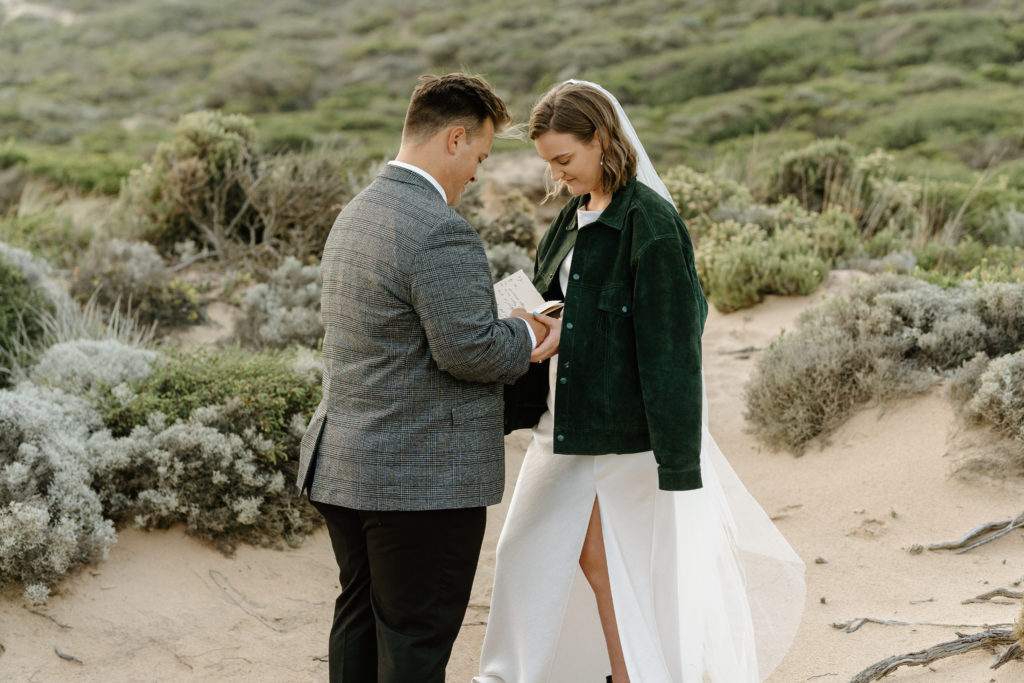
How to have both a commitment and legal ceremony
If you desire to legally marry but also long for the “just the two of you”, epic destination elopement experience. You can always legalize your marriage with a celebrant locally. And then plan your actual elopement experience at an alternative date. To legalize your marriage, you will need to do this through a legal marriage celebrant. This could be through your local registry office. Or by contacting a freelance celebrant, and having a small legal ceremony at home, or on public land. Then planning your actual elopement experience without needing to worry about any of the legal hassles on your day.
You can even do this on the same day. One of our favourite things to suggest for couples who want both a private ceremony and to include loved ones, is to slip the day in two parts. Start you morning with an adventure, and private commitment ceremony with just the two of you. Followed by your favourite activities, or a meal to share in just the two of you. Then in the evening join your loved ones for a legal ceremony, and a celebration!
For more information on how to legally marry within Australia, check out our blog post here.
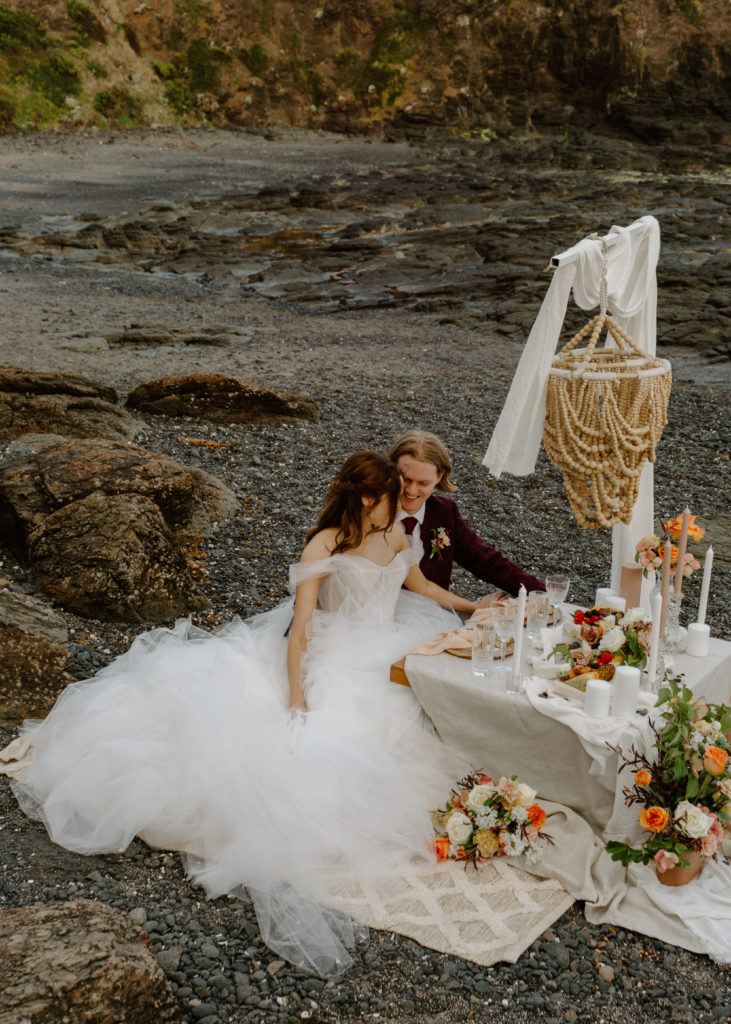
As you can see, eloping truly allows you to have any type of wedding experience you can dream of. We hope this was helpful and opened your eyes to all the possibilities that come with including a commitment ceremony within your elopement experience.
Looking to learn more about eloping? Check out some other great resources on our blog to help you get started on planning your dream day!
